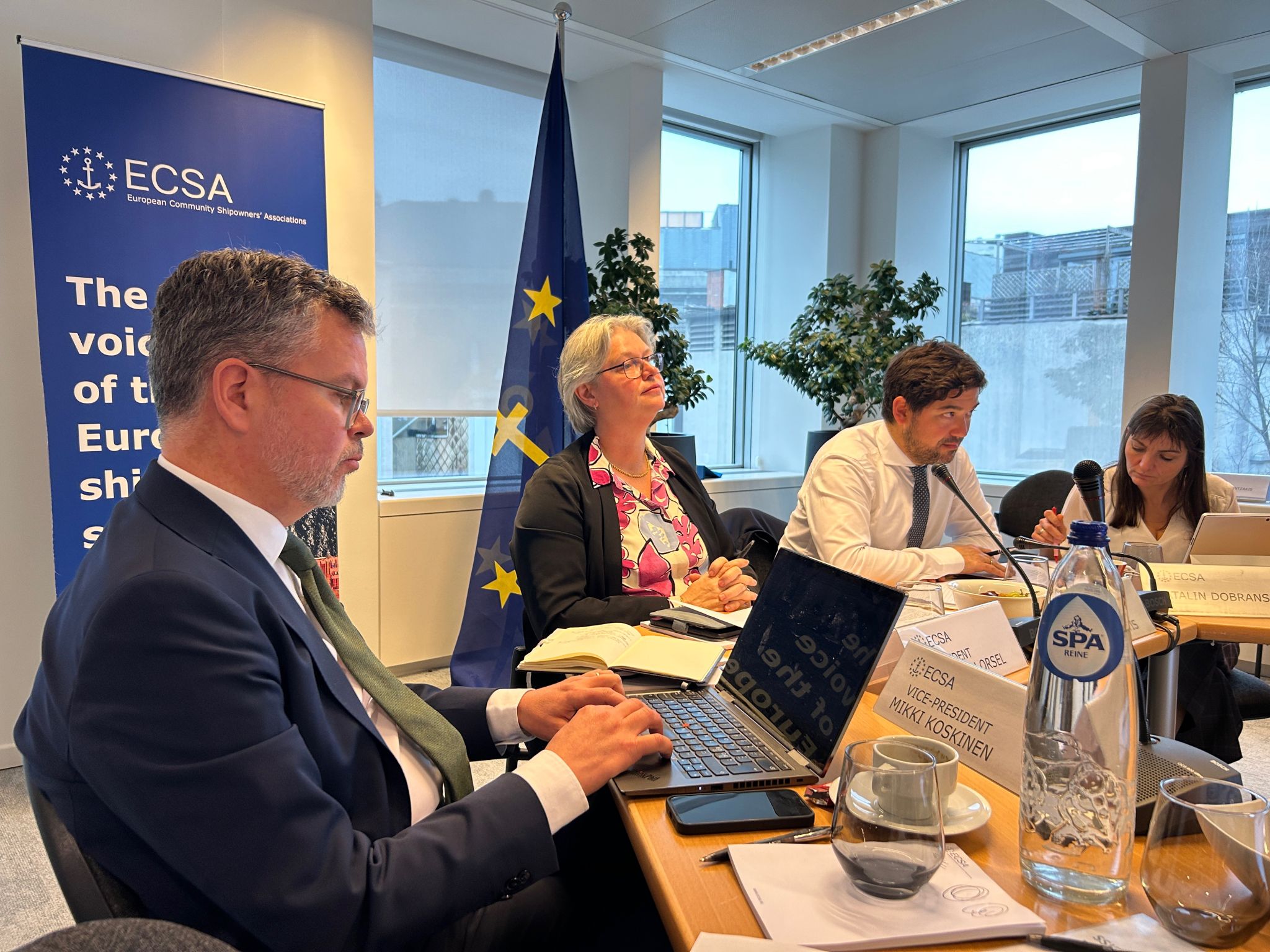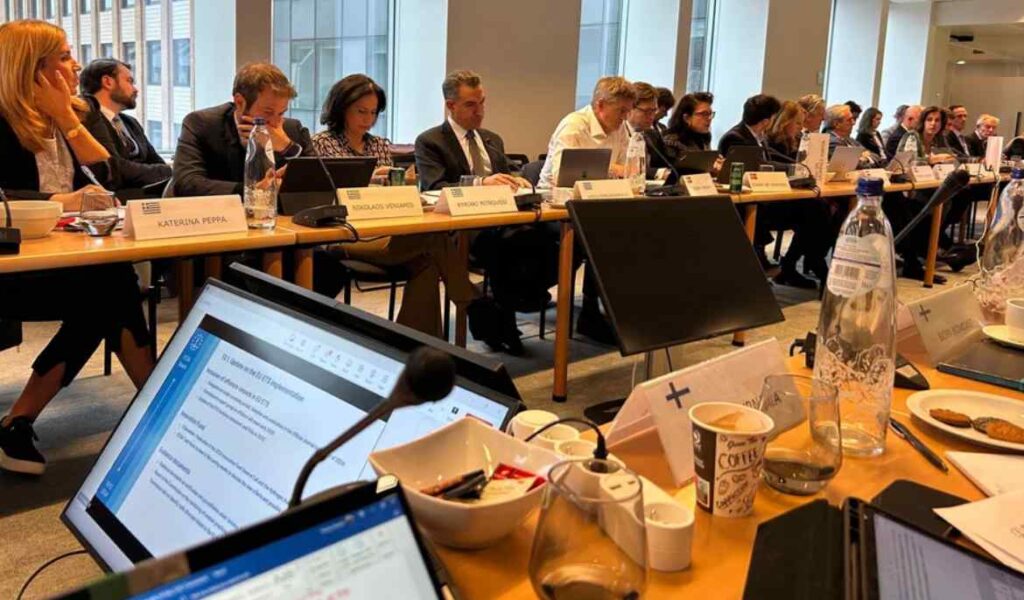Climate and competitiveness priorities for 2024-2029 discussed during meeting
Cyprus was represented at the annual general assembly of the European Community Shipowners’ Association (ECSA) and the meeting of its board, held on December 10 in Brussels.
Representatives of the Cypriot shipping industry participated in discussions aimed at securing the future of European shipping in an era of ambitious climate goals and intensifying global competition.
According to a statement from the Cyprus Shipping Chamber (CSC), the agenda covered strategies across various sectors of the association, designed to strengthen the voice of the European shipping industry and ensure its sustainable development.
Preparations for the European Shipping Summit 2025, a flagship event organised annually by the association, were also on the table.
The meeting noted the appointment of the new European Commission and examined the implications of the revised EU Emissions Trading System (ETS) and the FuelEU Maritime initiative.
These were discussed in the context of their alignment with the International Maritime Organisation’s (IMO) objectives for decarbonisation, with a focus on achieving the EU’s 2040 climate targets.
European shipowners also bid farewell to C. Thomas Rehder, former ECSA president, who stepped down from the board after years of dedicated service.
“Big thanks to Thomas for his outstanding contribution to European shipping,” read a statement from ECSA, reflecting the sector’s gratitude for his leadership.

Discussions centred on the European Commission’s new priorities, including the forthcoming European clean industrial deal, as well as broader challenges such as clean fuel adoption and technological advancements.
These topics are seen as vital for ensuring that European shipping continues to play a strategic role in the continent’s energy, food, and supply chain security, especially as Europe strives for climate neutrality by 2050.
To support this vision, ECSA unveiled its policy priorities for 2024-2029. These priorities focus on driving the climate and energy transition, fostering a people-centred green and digital shift, enhancing ship finance and competitiveness, and bolstering trade.
Collectively, they aim to ensure that European shipping remains competitive and resilient while contributing to Europe’s broader economic and environmental objectives.
ECSA Secretary General Sotiris Raptis emphasised the fundamental role of shipping in Europe’s economic security.
“Shipping has been a European success story amid growing geopolitical instability. It has been a cornerstone of the economic security of our continent, delivering the energy we need and supporting the exports of our goods,” Raptis said.
He added, “Shipping has enabled Europe to remain a leader in international supply chains.”

Raptis also addressed the challenges of adopting clean fuels and advanced technologies. “The uptake of clean fuels and technologies has emerged as the new battlefield of international competition. The EU has set up the most ambitious climate targets internationally, laying out a pathway to net zero by 2050,” he remarked.
However, he cautioned, “Without proper access to finance and without immense public investments, the energy transition and the competitiveness of the industry are at stake.”
Beyond technology, the human element was a key focus of discussions.
Raptis stressed the importance of addressing the skills gap to support the green and digital transitions. “To meet the challenge of the digital transition and to match the uptake of clean fuels, we need to address the skills gap,” he said.
Raptis concluded, “Up to 800,000 seafarers will have to be upskilled or reskilled internationally by the mid-2030s.”



